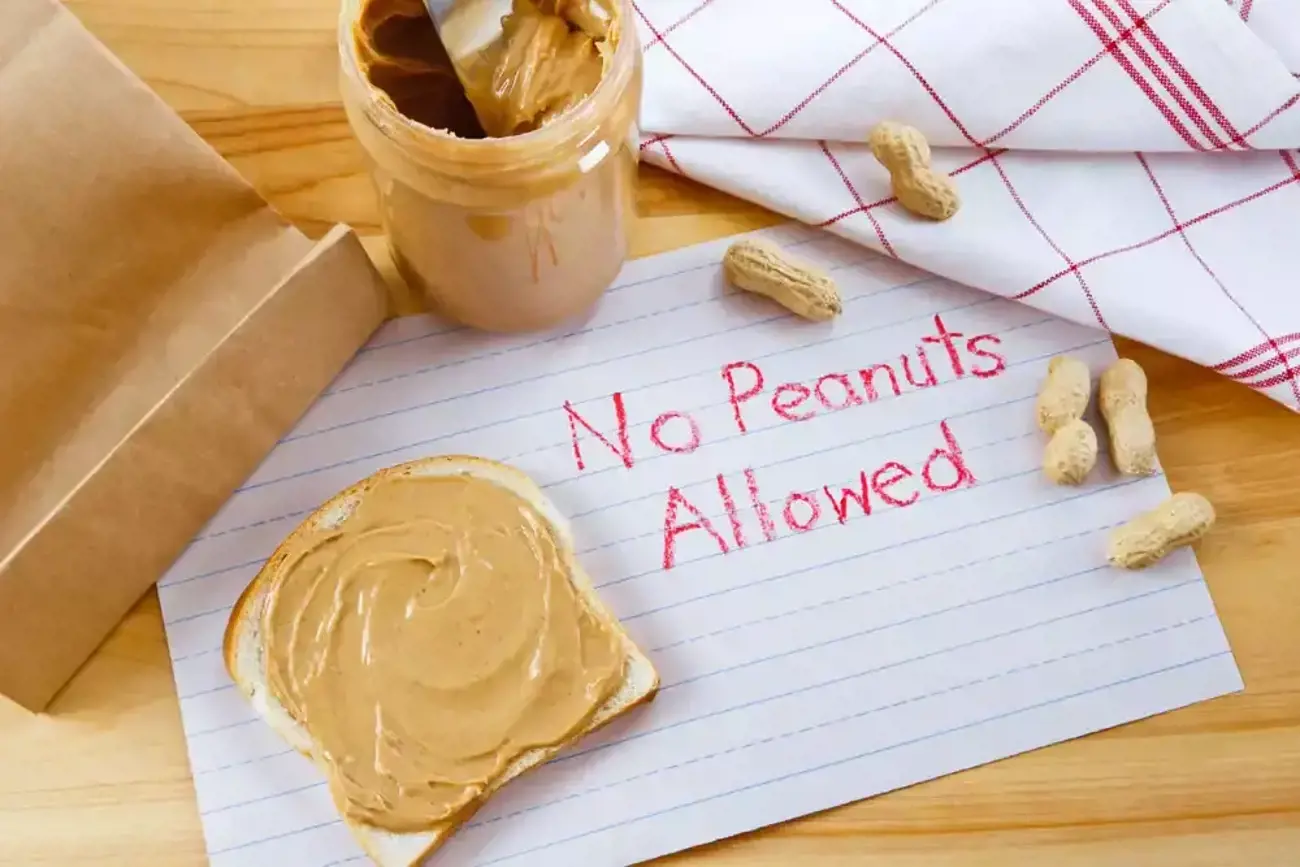Although a food allergy can develop at any age, it’s most common in children under five and in percentage terms, the Australasian Society of Clinical Immunology and Allergy (ASCIA), says that food allergy affects 10 per cent of babies before they turn one, and eight per cent of children up to five years of age.
A food allergy occurs when a person’s immune system reacts to a food protein that’s usually harmless. Cow’s milk, eggs and peanuts are the most common causes of food allergy in children, although tree nuts, sesame, soy, fish, shellfish and wheat are also common triggers.
Allergic reactions can be mild, moderate or severe, ranging from face swelling, hives, stomach pain and vomiting to anaphylaxis – which is a severe and potentially life-threatening reaction that can cause throat/tongue swelling, breathing problems and dizziness.
For these reasons, it can feel risky sending an allergic child into a care environment that’s full of messy eaters and close contact. The good news, though, is that food allergies can be managed in the child care setting.
How can parents work with educators to help keep children safe?
If your child has a diagnosed food allergy, it’s essential that you discuss this with your early childhood education and care (ECEC) service, so that they can take steps to minimise the environmental risk of your child encountering the food, and respond effectively if they do have an allergic reaction.
It’s important that you:
- Inform staff about your child’s allergy and its cause, explaining primary triggers, how to deal with a reaction, how to calm your child and anything else they need to know.
- Discuss age-appropriate and practical prevention strategies with staff. Ask about the service’s policies and procedures for reducing the risk of, and dealing with, allergic reactions.
- Work with staff to develop an individualised action plan that will help them keep your child safe.
If your child has a severe allergy, it’s important to give your ECEC service up-to-date medical information upon enrolment. Include an ASCIA Action Plan that is signed by your child’s doctor and has a current photo of your child, your contact details, your doctor’s details, your child’s confirmed allergy, the proper first aid response and any prescribed medication.
- If necessary, make sure the ECEC service has a supply of your child’s adrenaline autoinjector (e.g. EpiPen). Check that it’s within its used-by date and is ready to be used by a trained staff member if your child has a severe reaction.
Under the National Regulations, there must be at least one staff member with current anaphylaxis management training, asthma management training and first aid qualifications at each ECEC service, and you should confirm that this is the case at your service.
A study by Edith Cowan University, has found that almost one in 10 ECEC services are not requiring staff to undertake anaphylaxis training, and almost 40 per cent of the 494 services surveyed have been storing EpiPens in locked and hard-to-access places, so make sure your service is doing the right thing.
What other obligations do ECEC services have around food allergies?
National Allergy Strategy Manager, Sandra Vale says, ‘There is currently no requirement for food preparation staff to undertake food allergen management training,’ but ECEC services are responsible for the health and safety of children under the National Quality Standard.
To minimise risks and protect children from harm, Quality Area 2 calls for ECEC services to:
- Manage illness effectively and use healthy hygiene practices and procedures;
- Promote healthy eating, appropriate for each child;
- Supervise children to make sure they’re protected from harm or hazard; and
- Make plans to effectively manage incidents and emergencies.
This means that services with a thorough approach to food allergy will:
- Have clear policies and procedures to help keep allergic children safe, e.g. they’ll prepare and serve food in ways that avoids cross-contamination;
- They’ll offer nutritional, tasty and varied menus that take account of a child’s allergy, e.g. The Wholesome Child Nourish Program provides nourishing recipes to child care centres;
- They’ll watch for allergic reactions in children; and
- They’ll know what to do if a mild, moderate or severe reaction occurs.
How do ECEC service help parents identify a food allergy in their child?
Food allergies aren’t always diagnosed before a child goes to care, and sometimes educators will notice the effect a certain food has on a child.
Less common symptoms (like infantile colic, reflux or eczema) can point towards a food allergy, as well as more obvious ones (like face swelling), and if an educator suspects that your child is reacting to a food, they’ll suggest that you take them to a doctor as soon as possible.
According to The Sector, educators can also help you identify a food allergy by:
- Keeping a food diary, recording the food your child has eaten and any reactions.
- Speaking to the ECEC service’s chef/cook to find out what food was given to your child before they had a reaction.
- Taking a photo of their food reaction (e.g. skin welts) to share with your doctor.
- Saving the packaging of a food product that seems to have caused a reaction (e.g. the nutrition label).
- Working with you and your doctor to remove suspected foods from your child’s diet for two to six weeks, or until their allergy symptoms fade. Educators can then carefully reintroduce foods, one at a time, and keep note of any symptoms that appear, to help pinpoint a food allergy.
What food allergy resources are available to ECEC services?
Ms Vale (from the National Allergy Strategy) says that, ‘ECEC services need guidance and support to help them to put effective risk minimisation strategies in place.’
Although many quality ECEC services take food allergies seriously and work hard to reduce the risk of exposure to allergens, Ms Vale is calling for all staff to be provided with, ‘Good, evidence-based training around allergies and food handling so we can avoid the need to use EpiPens at all.’
To this end, the National Allergy Strategy is freely available to all ECEC services, with online training offered to help improve food allergy management when serving food.
ASCIA also provides resources to help ECEC services promote the health and safety of children with food allergies. They include:
- Risk Minimisation Strategies for Schools, Pre-schools and Child care, e.g. ways to reduce risks when celebrating birthdays, doing craft, going on excursions, serving food etc;
- Guidelines for the Prevention of Anaphylaxis in Schools, Pre-schools and Child Care; and
- Anaphylaxis E-training, which helps educators, ‘Provide a consistent approach to prevention, recognition and emergency treatment of anaphylaxis.’
As with many things, communication is key when it comes to food allergy.
It’s important to form a strong, reciprocal relationship with your ECEC service, so they’re aware of your child’s needs and can take active steps to keep your child safe as they embrace all that early learning has to offer.
Further reading
NipAllergies in the Bub: Ways to help prevent food allergies in under ones
Food Allergy Aware: A great source of food allergy information for families
Telethon Kids: Whooping cough vaccine helps in fight against food allergies



































